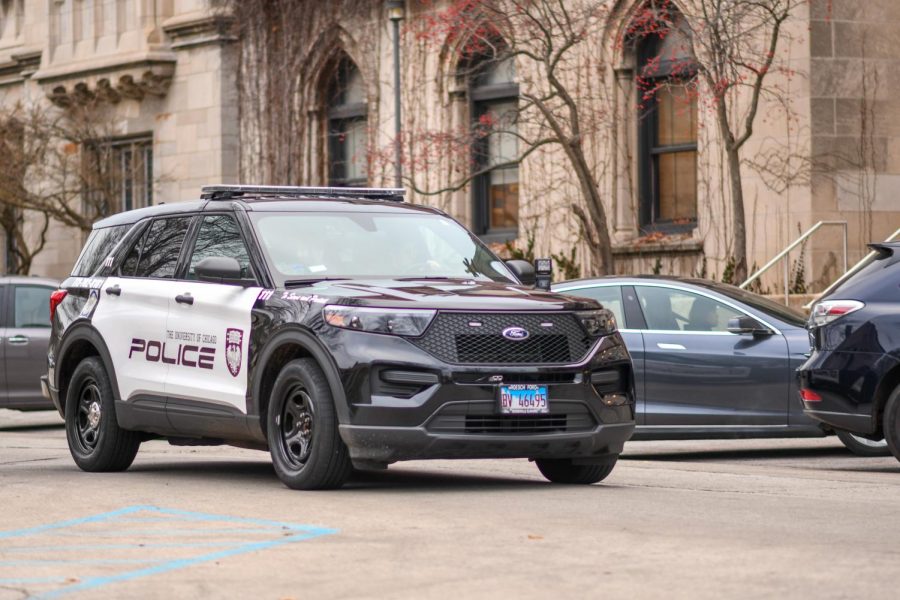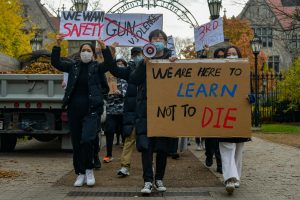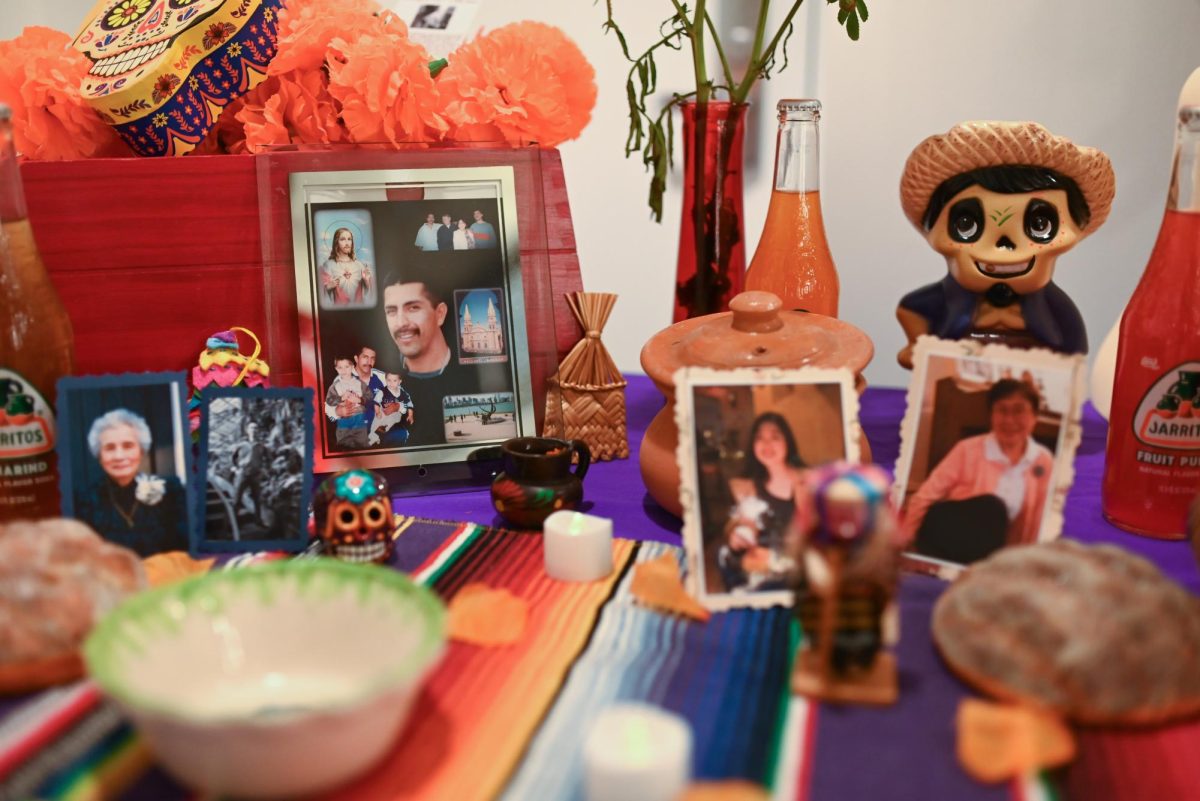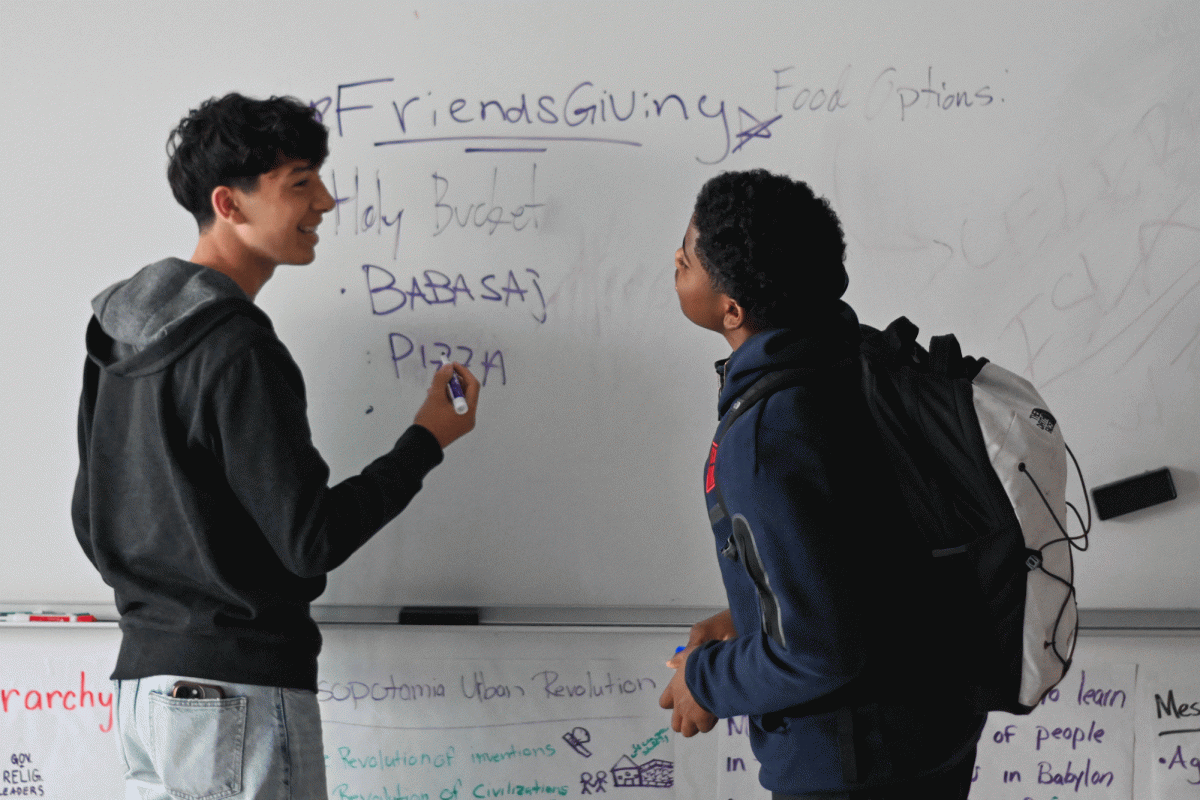UChicago, police implement more safety measures
To address recent safety concerns, UChicago implements new initiatives by expanding police presence, including foot patrols and increasing traffic stops.
December 15, 2021
In the weeks since two shootings took place blocks from the school on Nov. 9, the University of Chicago and Chicago Police Department have responded with an increased police presence and technology. Some community members disagree with this move and some students have changed their behavior to better protect themselves.
The first shooting, an attempted armed robbery, killed UChicago graduate Shaoxiong “Dennis” Zheng, 24. According to Chicago Police Superintendent David Brown, the killers pawned the stolen goods for $100. The second shooting took place on 53rd Street, resulting in damage to businesses and parked vehicles but no injuries or deaths.
On Nov. 11, university leaders announced additional safety measures including adding more surveillance cameras, police patrols and transit options for students. On Dec. 1, Ald. Sophia King (4th) and Ald. Leslie Hairston (5th), whose wards include the Hyde Park and Kenwood areas, hosted a webinar for the local community with Superintendent Brown and Eric Heath, the UChicago associate vice president for safety and security, which detailed initiatives to improve safety and expand police presence, including foot patrols, more intense lights on police cars and more traffic stops.
CPD and UChicago Police will cooperate for more foot patrols around 53rd Street to establish a presence to deter crime and to engage proactively with locals to respond quickly to reports of crime, according to Mr. Brown.
“We added foot patrols in highly trafficked pedestrian areas to address the concern that our officers weren’t checking in with community members and were just driving by,” Mr. Brown said at the webinar.
To increase awareness among criminals and community members that police are nearby, CPD vehicles will turn on the high-powered, long-range blue lights, which can be seen several blocks away according to Mr. Brown.
In what some view as a controversial step, Mr. Brown said police would more aggressively pursue traffic stops. CPD’s theory is that more stops will allow police officers to check for stolen vehicles or firearms.
“The killer of the UChicago graduate drove around the neighborhood for hours, looking for people to rob,” Mr. Brown alleged. “If we were more proactive and able to stop him, we could have prevented the killing.”
Critics of increased traffic enforcement say that stops are ineffective and disproportionately target Black community members. Allison Beaulieu, a Woodlawn resident and Laboratory Schools art teacher, circulated a letter signed by over 800 university faculty, students and alumni that demands an immediate disarmament and 50% decrease in UCPD’s budget.
“I think the university’s response is absolutely a step in the wrong direction and it will perpetuate fear,” Ms. Beaulieu said in an interview with the Midway. “I understand the fear. I understand that people are afraid. I’m afraid, but we can’t afford to make decisions that make people of color in this neighborhood feel even more marginalized.”
Although Mr. Brown pledged to increase police presence, he acknowledged it’s not the only solution to crime worth pursuing.
“We also acknowledge safety also means dealing with poverty, dealing with employment, dealing with other social services as some of the root causes of crime and public disorder,” he said.
The signers of the letter Ms. Beaulieu circulated support reallocating UCPD’s budget toward grassroots safety initiatives.
“I do see a role for police in Hyde Park, but it’s significantly smaller and fundamentally different than what we have now,” Ms. Beaulieu said. Her view is less radical than the letter’s demands, which include disbanding UCPD by 2023.
In contrast to this view, Mr. Heath argues that UCPD, one of the nation’s largest private police forces, is not large enough.
“We are a large university police department when you compare it to most university agencies, but with our responsibilities and extended area, I would argue we’re not as large as we need to be,” Mr. Heath said at the webinar. “So we have asked for additional long-term UCPD staffing so we’re not pulling our beat officers from the community to address issues on campus.”
U-High junior Hannah Maxcy walks to her car after basketball practice nearly every day in the dark, and has noticed the increased police presence. In response to the uptick in neighborhood crime, she now moves her car closer to the entrance of the school, so she has to walk a shorter distance in the dark.
“I definitely see more security and police patrolling the area,” she said. “But I would definitely feel safer if there were more security officers specific to Lab.”
Although Hannah said she does not usually feel unsafe when walking to her car, she says that she feels uneasy walking around the school as it gets completely dark at night.
“Sometimes I get nervous when it’s completely dark outside and there aren’t many people,” she said. “So adding more lights outside the school could be a good idea.”













